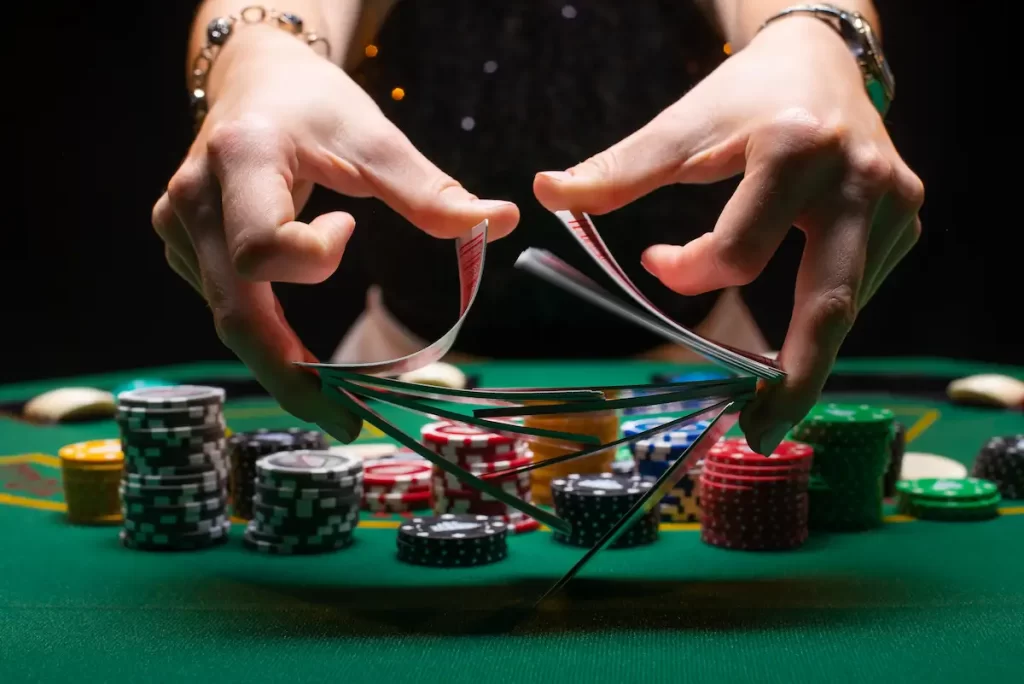Poker is a game of skill and strategy, but also requires having an accurate mental state for long-term success. Achieve your goals more efficiently.
One of the biggest errors made by new players is being results-focused, leading them into frustration, self-doubt and emotional reactions (hello tilt!). To ensure proper progress it’s essential that beginners grasp variance.
1. Focus on the process
Focusing on the process is one of the best ways to strengthen your poker mindset. Setting goals and not getting stuck on results will keep your motivation high even when things don’t seem to go your way; great players have learned to shrug off bad beats as proof that their success comes from dedicating an immense amount of time studying the game.
Staying focused during long sessions can be challenging for newer players. Breaks and practicing mental hygiene are two effective strategies for staying sharp and improving your poker mindset. Consulting a poker mindset coach could also give you clarity into your personal obstacles and how you can overcome them.
2. Accept variance
The best poker players are adept at managing variance. They understand that bad beats are part of the game and should not let emotions take control. Furthermore, they maintain long-term perspectives to make sure their strategy pays off in the end.
The concept of variance can be an eye-opener for poker players. It helps them appreciate that luck plays a part in short-term results while more skilled players ultimately win out over time. Furthermore, variance highlights the necessity of bankroll management to manage downswings effectively – by viewing bankroll management like running a business and viewing downswings as expenses rather than income, they can make better decisions to increase their odds of victory and ultimately their odds of winning more often.
3. Adopt a growth mindset
Maintaining a positive and effective poker mindset requires taking an open-minded approach to learning, accepting mistakes and seeking feedback from coaches and peers. Doing this will allow you to avoid frustration while developing the appropriate strategies that suit your playstyle.
An effective growth mindset includes accepting variance and building emotional resilience, so as to prevent becoming discouraged when losing sessions and maintain disciplined decision making processes.
A growth mindset involves acknowledging confirmation bias, the tendency to seek evidence that supports your beliefs. Confirmation bias can lead to bad reads and costly mistakes; to recognize and avoid it it’s crucial that you take breaks, avoid distractions and track your play in a journal to track its progression. A support system such as friends/family/coaches or online communities of poker players may also prove useful.
4. Be patient
Patience at the poker table requires more than just waiting for good hands; it involves making calculated decisions that will allow you to build up your chip stack over time and take control of the game. Patience involves learning conservative moves that won’t endanger your bankroll and keeping a close eye on opponents’ tendencies in order to take advantage of them.
Impatience can be detrimental to your poker results, especially when it leads to emotional decision-making. By practicing mindfulness and self-awareness to identify when you’re feeling frustrated or impatient, mindfulness and self-awareness will allow you to manage these emotions more effectively without interfering with your gameplay. Furthermore, creating a supportive network can help develop patience.
5. Practice good mental hygiene
Though you cannot control everything that occurs at a poker table, you should do your best to avoid situations that could harm your mental health and performance at the table. This includes refraining from mind-altering substances that could cause poor decisions to be made which might impact performance at the table.
Mental hygiene requires engaging in activities that enhance mental wellbeing, like physical exercise and meditation, which can help you remain calm and focused at the poker table despite high pressure situations.
An effective poker mindset is vital for success. It enables you to maintain emotional control when things don’t go your way and make smart decisions that increase the odds of winning, as well as play confidently and skillfully no matter the situation at the table.












More Stories
Poker Hand Analysis – A Mathematical Model
The Importance of Position in Poker
Essential Poker Math – Calculations Every Player Should Know